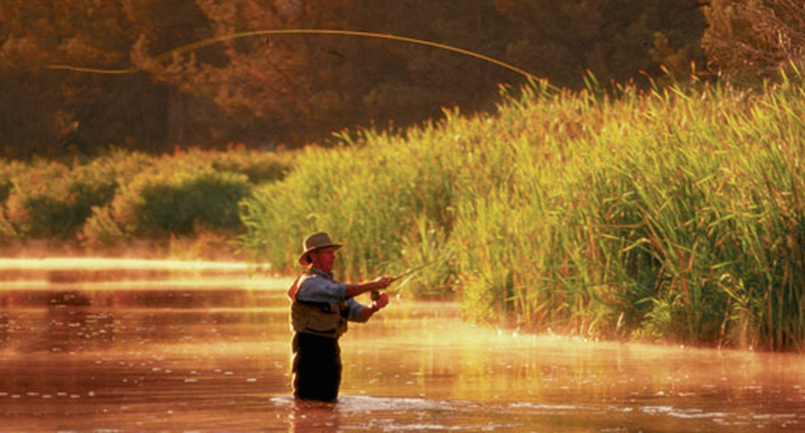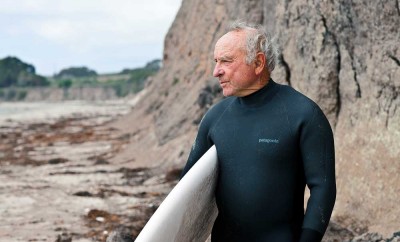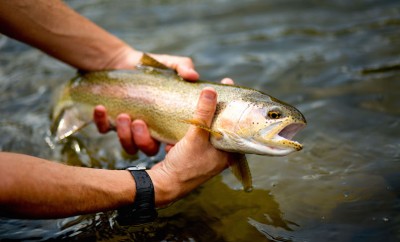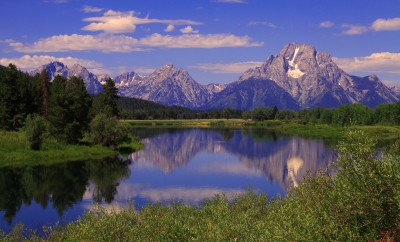
Image: Running Ranch
Kokanee fishing is a growing sport in Oregon, where these frisky salmon aren’t as big as chinook and coho reared in the ocean but are so plentiful that many lakes offer bonus bag limits because there are so many to go around.
In 2010, Ron Campbell set the new world with a 9-pound, 10.72-ounce kokanee he caught at Wallowa Lake in northeast Oregon.
Wallowa Lake has long been Oregon’s best lake for very large kokanee. These landlocked sockeye salmon grow to sizes resembling their ocean-going kin, rather than the pan-sized fish found in most kokanee lakes.
Where to Catch Kokanee in Oregon
Besides Wallowa Lake, Oregon has a handful of favorite kokanee lakes. Several of them have “bonus” bag limits of 25 kokanee per day in addition to limits of other game fish.
One of the most consistent kokanee waters in Oregon is Odell Lake near Willamette Pass, off Highway 58 roughly mid-way between Bend and Eugene. The kokanee here aren’t big, but anglers with even modest experience stand a chance at reaching the 25-kokanee limit.
While kokanee numbers fluctuate from season to season in most locations, other Central Oregon lakes and reservoirs that often have excellent kokanee fishing include Wickiup Reservoir south of Bend and Suttle Lake near Sisters, which also have 25-kokanee limits. Elk Lake has the same bag but kokanee there tend to run small.
Also in Central Oregon, Lake Billy Chinook near Culver no longer has a 25-kokanee bag but still has excellent angling. Other favorite waters in this area are Paulina and East lakes in Newberry Crater, Crescent Lake near Odell Lake, Haystack Reservoir between Madras and Redmond and Lake Simtustus near Warm Springs.
In Western Oregon, a great kokanee fishing spot is Green Peter Reservoir near Sweet Home in the Cascade foothills, a short drive from Willamette Valley towns including Albany. Green Peter has a 25-kokanee limit and anglers who learn the reservoir can reach it when the bite is on.
Timothy Lake, a popular rainbow trout fishery southeast of Portland, also has a separate 25-kokanee limit and at time produces good catches. East of Salem, Detroit Reservoir anglers include kokanee and other landlocked salmon in their trout limit.
In Southeast Oregon, Lake of the Woods and Fourmile Lake, near each other in the southern Cascades between Klamath Falls and Medford, both have good kokanee populations and 25-fish limits in addition to reliable trout fisheries. Also in the region, Miller Lake near Chemult and Heart Lake between Klamath Falls and Lakeview offer kokanee fishing. Miller has a 25-kokanee bag but the kokanee tend to run small here.
How to Catch Kokanee
First off, perhaps the most useful tool an angler can have is a fish finder. This allows them to pinpoint kokanee schools, both their locations on the lake and their holding depth. Without a fish finder, the best advice is to inquire locally and watch for concentrations of boats.
The most popular way to catch kokanee is by trolling.
Trollers employ small, brightly colored lures to entice a strike. Various spoons, spinners and hootchies all work well. Stock a mix of lure types and colors, including fluorescent shades, as kokanee preferences can change by the hour.
When trolling, most anglers pull their lures behind dodgers or gang-style blade sets to help attract kokanee, a flashy, schooling fish. Also, it’s fairly standard practice to put a piece of bait on the hook. Popular baits include white shoe-peg corn, maggots, shrimp, prepared baits or a small piece of nightcrawler. Some anglers also add prepared scents. Some anglers use rubber snubbers in an effort to blunt the force of the hookup because kokanee have soft mouths, but not all kokanee fishers believe this is productive.
Early in the season, kokanee often can be found near the surface. As warmer weather arrives, kokanee dive deep and trollers use lead weight or weighted lines to reach their quarry. Many serious anglers instead use downriggers, allowing them to more accurately target kokanee schools and then fight frisky fish on light tackle without as much weight.
Another very effective way to catch kokanee is by jigging for them with brightly colored metal lures. These jigs often are worked by anglers in a anchored boat, dropped vertically to the level of holding schools. Jig the lure upward and let it flutter among the fish. Kokanee usually grab it on the drop.
Jigs also can be cast toward shallow schools, which often are marked by jumping kokanee. Pitch the jig toward the fish and retrieve it in an erratic motion that includes pauses to let the jig flutter while it sinks.
Bait fishing can also be productive, using many of the same baits trollers use. Some anglers use a combination of baits, known locally by such names as the “Wickiup Sandwich.”
Occasionally, anglers will have success fly fishing for kokanee, especially early in the year when these zooplankton eaters will turn a focus to aquatic insect larvae closer to shore.





0 comments